Perpetuum mobile
Vijandbeeld
Het gematigde alternatief
-------------------------------------------------------------
PVV Geert Wilders betichtte Sigrid Kaag van „sympathie voor terroristen”. Partijen worstelen al vijftien jaar met de PVV: doodzwijgen of bestrijden?
-------------------------------------------------------------

The charges against Allen Weisselberg might seem small fry, but the threat to people higher up the food chain is mounting
M
“This case is being prosecuted like a mob case. And that means they are starting at the bottom of the tree, and working their way up, by getting the smaller fish to flip with pressure on people like Weisselberg to rat on their former boss of bosses!” Cohen said, gleefully mixing his metaphors.
Cohen knows this score. Trump has been under investigation by New York’s top prosecutors for three years – in large part thanks to Cohen, once his trusted lawyer. Cohen – who once said he would “take a bullet” for Trump – turned on the former president as he was sentenced to 36 months in prison for crimes including facilitating illegal payments to silence two women who allegedly had sex with Trump.
On the surface, the Weisselberg charges did seem like “smaller fish”. In an interview with Politico, Trump’s lawyer Ronald Fischetti said: “It’s like the Shakespeare play Much Ado About Nothing. This is so small that I can’t believe I’m going to have to try a case like this.”
But surfaces can be deceptive.
After three years of subpoenas, supreme court hearings and existential legal rows about the legality of charging a president of the United States with wrongdoing, New York’s fearsome prosecutorial team have charged a little-known 73-year-old accountant with defrauding taxpayers of $1.7m over 15 years. That is big money for most people, but not an amount that would worry Trump, who Forbes calculates is worth $2.4bn.
Downplaying the significance of this week’s indictment would, however, be a mistake. Alongside Weisselberg, Manhattan district attorney Cyrus Vance, and the New York state attorney general Letitia James also charged the Trump Organization with tax fraud, the start of a process that could crack the secretive Trump empire wide open.
The salvo in the long-brewing legal battle will, at the very least, wrap up Trump for years in legal woes, and at worst could destroy his family business and put not just Weisselberg but the Trump family members who run his business and Trump himself in the dock.
The indictment would “raise the unprecedented prospect of a former president having to defend the company he founded and has run for decades against accusations of criminal behavior,” Cohen cooed.
No longer insulated by claims of presidential protections, Trump faces a flotilla of legal actions. Alongside the charges brought this week against Weisselberg and the Trump Organization, Vance and James are investigating questionable payments to former Trump sex partners and whether the value of real estate in his company’s portfolio was manipulated to defraud insurance companies and banks and to generate unlawful tax breaks.
In some ways, the charges against Weisselberg give us a glimpse of the bumpy road ahead for the former president.
“This has been framed as a ‘fringe benefits’ issue,’” said University of Chicago Law School professor Daniel Hemel, an expert on taxation and federal courts. “Another way of looking at it is that the Trump Organization was paying its CFO [chief financial officer] under the table.”
Such a move – if proven – would be an extraordinary thing for a company the size of Trump’s to have done, and will likely lay the groundwork for what’s ahead.
Ironically, one parallel case Hemel pointed to was the prosecution of Leona Helmsley, the late Manhattan hotel empress and long-time sparring partner of Donald Trump.
Helmsley v Trump was a Manhattan feud for the ages. Trump was an admirer of Harry Helmsley, the billionaire property tycoon who once owned the Empire State Building. Leona Helmsley not so much. He once called her a “disgrace to humanity”. Helmsley simply said: “I hate Donald Trump.”
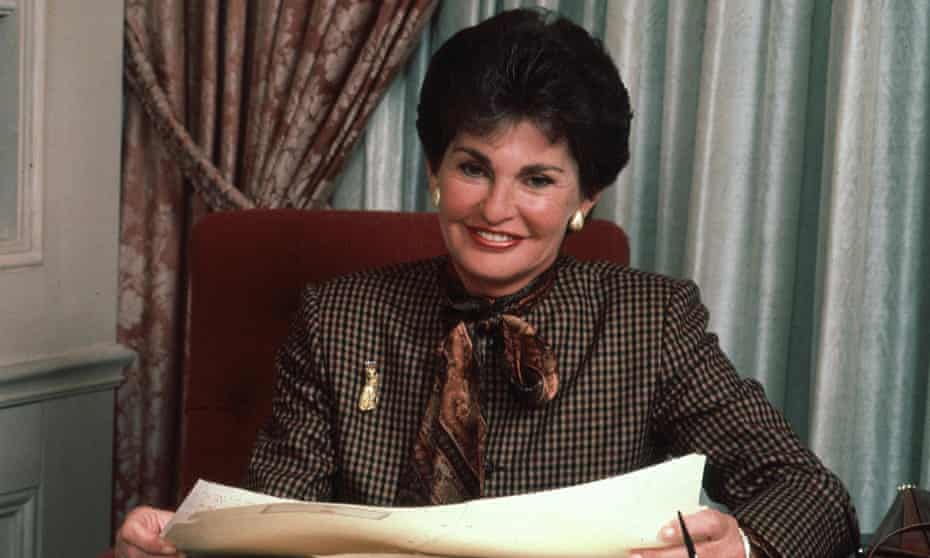
In 1988 the Helmsleys were charged with evading more than $4m in income taxes. In another historical twist, the charges were brought by Rudy Giuliani, then federal prosecutor and more recently one of Trump’s staunchest allies.
The following year, Helmsley – her husband was too sick to stand trial – was sentenced to four years in jail after being found guilty on 33 counts of tax evasion including fraudulently charging a $1m marble dance floor for their private mansion to their hotel and real-estate empire.
“These are things that are unequivocally not business expenses,” said Hemel. Even Trump agreed, saying shortly after Leona Helmsley’s death that it was “foolish” for her husband to have committed tax evasion “because he was such a rich man”.
Given that sentiment, why would the Trump Organization – allegedly – cook the books for such relatively small sums?
The coming cases may provide an answer. Both Weisselberg and the company deny any wrongdoing, and have said they will fight the case in court, but the cases will blow open Trump’s finances, something he has fought hard to prevent, even going as far as to go against recent presidential precedent and refusing to release his tax returns.
But while there are many similarities between the polarizing property plutocrats Trump and Helmsley, Trump’s case is in many ways unusual.
First, said Hemel, it’s highly unusual a business as large as Trump’s would engage in these kinds of alleged tax frauds. With its army of lawyers and accountants, it should have been easy enough for his advisers to find perfectly legal ways to avoid paying taxes – just as ProPublica’s revelations have shown his billionaire peers have done.
Second, when a tax-avoidance scheme is exposed as potentially open to prosecution, it is highly unusual for businesses to fight those charges. The normal course of action is to apologize and pay up.
Add on that in this case the man at the top is a former president of the United States and: “Everything about this case is unusual and everything about it is political,” said Hemel. “That doesn’t mean the district attorney is wrong to go after it.”
In the high-stakes chess game Vance and James are now playing against Trump, this is an opening move that immediately threatens one of their opponent’s key pieces.
Weisselberg has worked for the Trump family for close to 50 years. Outside the family, and arguably inside, no one knows how the Trump business really operates better than him. His two sons have worked with Trump. Jennifer Weisselberg, one of his son’s ex-wives, is a key witness for the prosecution and handed what her lawyer, Duncan Levin, describes as 10 banker’s boxes of evidence.
The pressure is on for Weisselberg to flip but his indictment also puts pressure on Trump insiders lower down the tree.
Robert Mintz, a former federal organized crime prosecutor and now partner at law firm McCarter & English, said: “Complex white-collar fraud cases are very difficult to prove, and generally require more than financial records to demonstrate clear evidence of criminality. Prosecutors typically build these cases with the benefit of a cooperating witness who can walk them through the documents and add an insider’s perspective to the conspiracy.”
As Cohen pointed out this week Trump can no longer hold out the promise of a presidential pardon to his allies. Facing potential ruin and jail time, will Weisselberg stay true? And as the charges keep coming, where will others decide their loyalty lies?
“Loyalty is hard to maintain when it can put you in jail,” said Hemel.
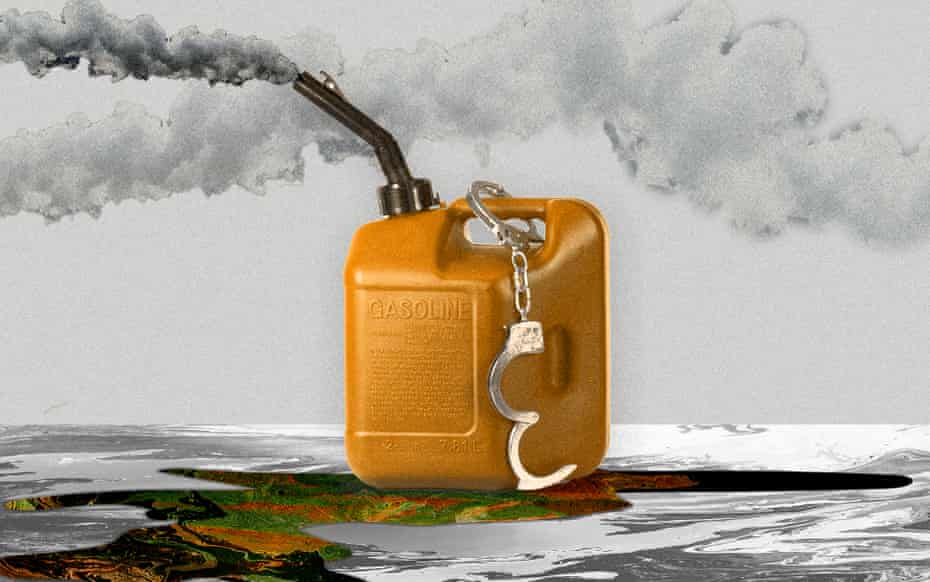
Via an unprecedented wave of lawsuits, America’s petroleum giants face a reckoning for the devastation caused by fossil fuels
Are you a fossil fuel industry insider? We want to hear from you
An unprecedented wave of lawsuits, filed by cities and states across the US, aim to hold the oil and gas industry to account for the environmental devastation caused by fossil fuels – and covering up what they knew along the way.
Coastal cities struggling to keep rising sea levels at bay, midwestern states watching “mega-rains” destroy crops and homes, and fishing communities losing catches to warming waters, are now demanding the oil conglomerates pay damages and take urgent action to reduce further harm from burning fossil fuels.
But, even more strikingly, the nearly two dozen lawsuits are underpinned by accusations that the industry severely aggravated the environmental crisis with a decades-long campaign of lies and deceit to suppress warnings from their own scientists about the impact of fossil fuels on the climate and dupe the American public.
The environmentalist Bill McKibben once characterized the fossil fuel industry’s behavior as “the most consequential cover-up in US history”. And now for the first time in decades, the lawsuits chart a path toward public accountability that climate activists say has the potential to rival big tobacco’s downfall after it concealed the real dangers of smoking.
“We are at an inflection point,” said Daniel Farber, a law professor at the University of California, Berkeley and director of the Center for Law, Energy, and the Environment.
“Things have to get worse for the oil companies,” he added. “Even if they’ve got a pretty good chance of winning the litigation in places, the discovery of pretty clearcut wrong doing – that they knew their product was bad and they were lying to the public – really weakens the industry’s ability to resist legislation and settlements.”
F
In 1979, an Exxon study said that burning fossil fuels “will cause dramatic environmental effects” in the coming decades.
“The potential problem is great and urgent,” it concluded.
But instead of heeding the evidence of the research they were funding, major oil firms worked together to bury the findings and manufacture a counter narrative to undermine the growing scientific consensus around climate science. The fossil fuel industry’s campaign to create uncertainty paid off for decades by muddying public understanding of the growing dangers from global heating and stalling political action.
The urgency of the crisis is not in doubt. A draft United Nations report, leaked last week, warns that the consequences of the climate crisis, including rising seas, intense heat and ecosystem collapse, will fundamentally reshape life on Earth in the coming decades even if fossil fuel emissions are curbed.
To investigate the lengths of the oil and gas industry’s deceptions – and the disastrous consequences for communities across the country – the Guardian is launching a year-long series tracking the unprecedented efforts to hold the fossil fuel industry to account.
The legal process is expected to take years. Cities in California filed the first lawsuits back in 2017, and they have been tied down by disputes over jurisdiction, with the oil companies fighting with limited success to get them moved from state to federal courts where they think the law is more favorable.
But climate activists see opportunities long before verdicts are rendered in the US. The legal process is expected to add to already damning revelations of the energy giants’ closely held secrets. If history is a guide, those developments could in turn alter public opinion in favor of regulations that the oil and gas companies spent years fighting off.
A string of other recent victories for climate activists already points to a shift in the industry’s power.
Last month, a Dutch court ordered Shell to cut its global carbon emissions by 45% by the end of the decade. The same day, in Houston, an activist hedge fund forced three new directors on to the board of the US’s largest oil firm, ExxonMobil, to address climate issues. Investors at Chevron also voted to cut emissions from the petroleum products it sells.
Earlier this month, developers of the Keystone XL pipeline cancelled the project after more than a decade of unrelenting opposition over environmental concerns. And although a federal court last year threw out a lawsuit brought by 21 young Americans who say the US government violated their constitutional rights by exacerbating climate change, the Biden administration recently agreed to settlement talks in a symbolic gesture aimed to appease younger voters.
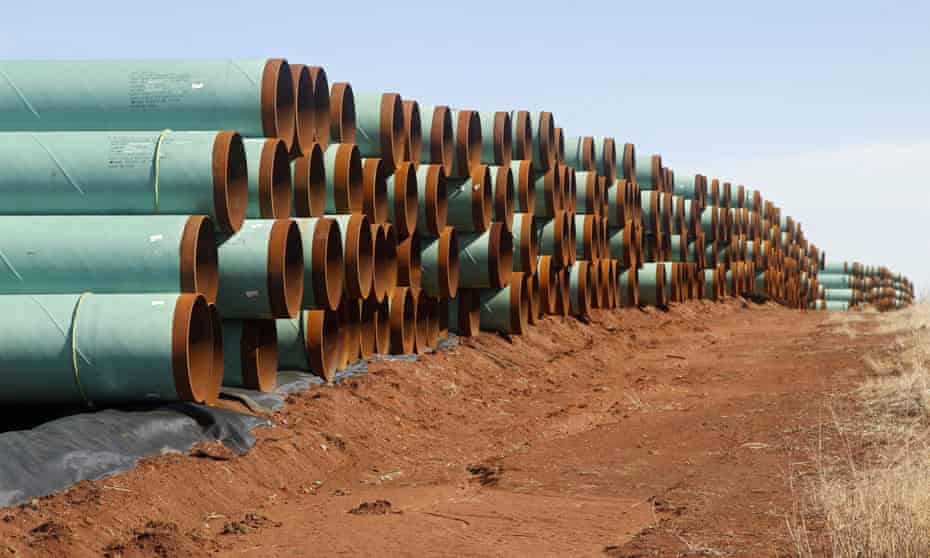
For all that, American lawyers say the legal reasoning behind foreign court judgments are unlikely to carry much weight in the US and domestic law is largely untested. In 2018, a federal court knocked back New York City’s initial attempt to force big oil to cover the costs of the climate crisis by saying that its global nature requires a political, not legal, remedy.
Other regional lawsuits are inching their way through the courts. From Charleston, South Carolina, to Boulder, Colorado, and Maui, Hawaii, communities are seeking to force the industry to use its huge profits to pay for the damage and to oblige energy companies to treat the climate crisis for what it is – a global emergency.
Municipalities such as Imperial Beach, California – the poorest city in San Diego county with a budget less than Exxon chief executive’s annual pay – faces rising waters on three sides without the necessary funding to build protective barriers. They claim oil companies created a “public nuisance” by fuelling the climate crisis. They seek to recover the cost of repairing the damage and constructing defences.
The public nuisance claim, also pursued by Honolulu, San Francisco and Rhode Island, follows a legal strategy with a record of success in other types of litigation. In 2019, Oklahoma’s attorney general won compensation of nearly half a billion dollars against the pharmaceutical giant Johnson & Johnson over its false marketing of powerful prescription painkillers on the grounds it created a public nuisance by contributing to the opioid epidemic in the state.
Other climate lawsuits, including one filed in Minnesota, allege the oil firms’ campaigns of deception and denial about the climate crisis amount to fraud. Minnesota is suing Exxon, Koch Industries and an industry trade group for breaches of state law for deceptive trade practices, false advertising and consumer fraud over what the lawsuit characterises as distortions and lies about climate science.
The midwestern state, which has seen temperatures rise faster than the US and global averages, said scorching temperatures and “mega-rains” have devastated farming and flooded people out of their homes, with low-income and minority families most at risk.
Minnesota’s attorney general, Keith Ellison, claims in his lawsuit that for years Exxon orchestrated a campaign to bury the evidence of environmental damage caused by burning fossil fuels “with disturbing success”.
“Defendants spent millions on advertising and public relations because they understood that an accurate understanding of climate change would affect their ability to continue to earn profits by conducting business as usual,” Ellison said in his lawsuit.
Farber said cases rooted in claims that the petroleum industry lied have the most promising chance of success.
“To the extent the plaintiffs can point to misconduct, like telling everybody there’s no such thing as climate change when your scientists have told you the opposite, that might give the courts a greater feeling of comfort that they’re not trying to take over the US energy system,” he said.
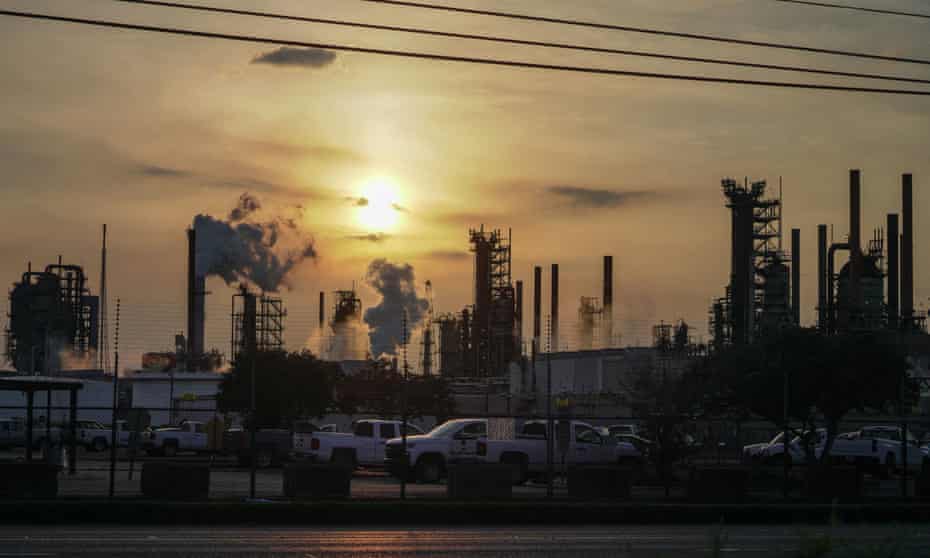
Almost all the lawsuits draw on the oil industry’s own records as the foundation for claims that it covered up the growing threat to life caused by its products.
Shell, like other oil companies, had decades to prepare for those consequences after it was forewarned by its own research. In 1958, one of its executives, Charles Jones, presented a paper to the industry’s trade group, the American Petroleum Institute (API), warning about increased carbon emissions from car exhaust. Other research followed through the 1960s, leading a White House advisory committee to express concern at “measurable and perhaps marked changes in climate” by 2000.
API’s own reports flagged up “significant temperature changes” by the end of the twentieth century.
The largest oil company in the US, Exxon, was hearing the same from its researchers.
Year after year, Exxon scientists recorded the evidence about the dangers of burning fossil fuels. In 1978, its science adviser, James Black, warned that there was a “window of five to ten years before the need for hard decisions regarding changes in energy strategy might become critical”.
Exxon set up equipment on a supertanker, the Esso Atlantic, to monitor carbon dioxide in seawater and the air. In 1982, the company’s scientists drew up a graph accurately plotting an increase in the globe’s temperature to date.
“The 1980s revealed an established consensus among scientists,” the Minnesota lawsuit against Exxon says. “A 1982 internal Exxon document … explicitly declares that the science was ‘unanimous’ and that climate change would ‘bring about significant changes in the earth’s climate’.”
Then the monitoring on the Esso Atlantic was suddenly called off and other research downgraded.
What followed was what Naomi Oreskes, co-author of the report America Misled, called a “systematic, organised campaign by Exxon and other oil companies to sow doubt about the science and prevent meaningful action”.
The report accused the energy companies of not only polluting the air but also “the information landscape” by replicating the cigarette makers’ playbook of cherry-picking data, using fake experts and promoting conspiracy theories to attack a growing scientific consensus.
Many of the lawsuits draw on a raft of Exxon documents held at the University of Texas, and uncovered by the Columbia Journalism School and the Los Angeles Times in 2015.
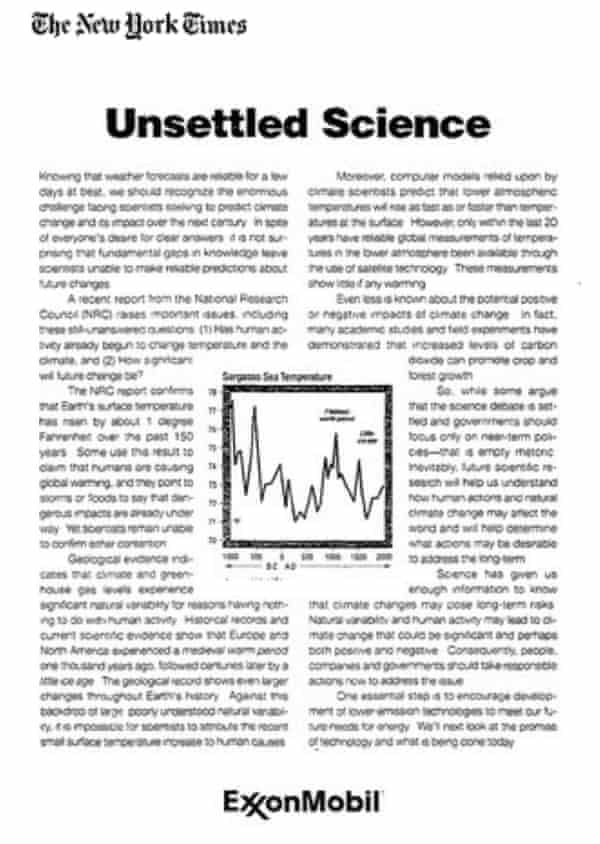
Among them is a 1988 Exxon memo laying out a strategy to push for a “balanced scientific approach”, which meant giving equal weight to hard evidence and climate change denialism. That move bore fruit in parts of the media into the 2000s as the oil industry repositioned global heating as theory, not fact, contributing to the most deep-rooted climate denialism in any developed country.
The company placed advertisements in major American newspapers to sow doubt. One in the New York Times in 2000, under the headline “Unsettled Science”, compared climate data to changing weather forecasts. It claimed scientists were divided, when an overwhelming consensus already backed the evidence of a growing climate crisis, and said that the supposed doubts meant it was too soon to act.
Exxon’s chairman and chief executive, Lee Raymond, told industry executives in 1996 that “scientific evidence remains inconclusive as to whether human activities affect global climate”.
“It’s a long and dangerous leap to conclude that we should, therefore, cut fossil fuel use,” he said.
Documents show that his company’s scientists were telling Exxon’s management that the real danger lay in the failure to do exactly that.
In 2019, Martin Hoffert, a professor of physics at New York University, told a congressional hearing that as a consultant to Exxon on climate modelling in the 1980s, he worked on eight scientific papers for the company that showed fossil fuel burning was “increasingly having a perceptible influence on Earth’s climate”.
Hoffert said he “hoped that the work would help to persuade Exxon to invest in developing energy solutions the world needed”. That was not the result.
“Exxon was publicly promoting views that its own scientists knew were wrong, and we knew that because we were the major group working on this. This was immoral and has greatly set back efforts to address climate change,” said Hoffert.
“They deliberately created doubt when internal research confirmed how serious a threat it was. As a result, in my opinion, homes and livelihoods will likely be destroyed and lives lost.”
Exxon worked alongside Chevron, Shell, BP and smaller oil firms to shift attention away from the growing climate crisis. They funded the industry’s trade body, API, as it drew up a multimillion-dollar plan to ensure that “climate change becomes a non- issue” through disinformation. The plan said “victory will be achieved” when “recognition of uncertainties become part of the ‘conventional wisdom’”.
The fossil fuel industry also used its considerable resources to pour billions of dollars into political lobbying to block unfavourable laws and to fund front organisations with neutral and scientific-sounding names, such as the Global Climate Coalition (GCC). In 2001, the US state department told the GCC that President George W Bush rejected the Kyoto protocol to reduce greenhouse gas emissions “in part, based on input from you”.
Exxon alone has funded more than 40 groups to deny climate science, including the George C Marshall Institute, which one lawsuit claims orchestrated a “sham petition” denying manmade global climate change. It was later denounced by the National Academy of Science as “a deliberate attempt to mislead scientists”.
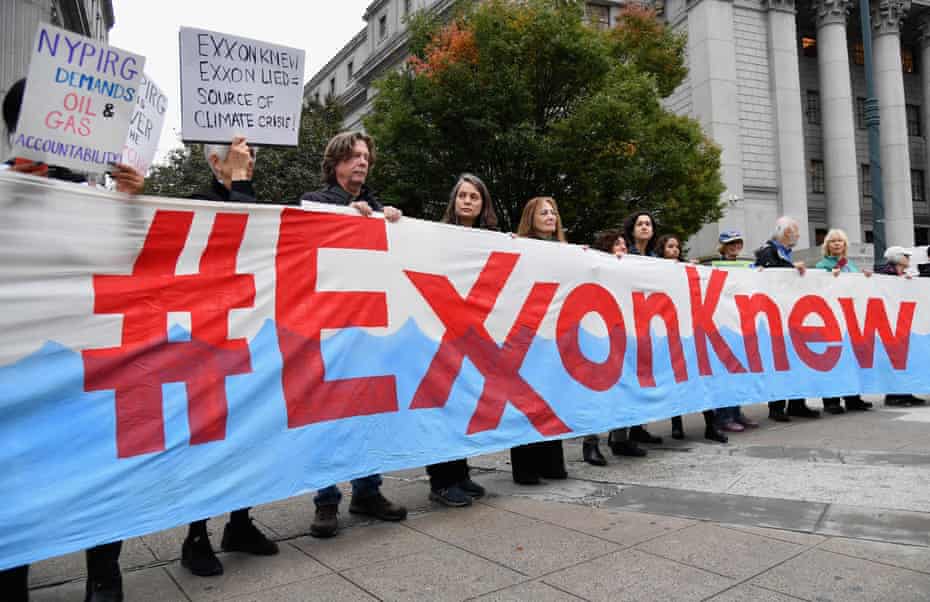
To Sharon Eubanks the conspiracy to deny science sounded very familiar. From 2000, she led the US justice department’s legal team against nine tobacco firms in one of the largest civil cases filed under the Racketeer Influenced and Corrupt Organizations (Rico) Act, which was designed to combat organised crime.
In 2006, a federal judge found that the industry had spent decades committing a huge fraud on the American public by lying about the dangers of smoking and pushing cigarettes to young people.
Eubanks said that when she looked at the fossil fuel industry’s strategy, she immediately recognised big tobacco’s playbook.
“Big oil was engaged in exactly the same type of behaviour that the tobacco companies engaged in and were found liable for fraud on a massive scale,” said Eubanks. “The cover-up, the denial of the problem, the funding of scientists to question the science. The same pattern. And some of the same lawyers represent both tobacco and big oil.”
The danger for the fossil fuel industry is that the parallels do not end there.
The legal process is likely to oblige the oil conglomerates to turn over years of internal communications revealing what they knew about climate change, when and how they responded. Given what has already come out from Exxon, they are unlikely to help the industry’s case.
Eubanks, who is now advising attorneys general and others suing the oil industry, said a turning point in her action against big tobacco came with the discovery of internal company memos in a state case in Minnesota. They included language that talked about recruiting young people as “replacement smokers” for those who died from cigarettes.
“I think the public was particularly stunned by some of the content of the documents and the talk about the need for bigger bags to take home all the money they were going to make from getting people to smoke,” said Eubanks.
The exposure of the tobacco companies’ internal communications shifted the public mood and the politics, helping to open the door to legislation to curb smoking that the industry had been successfully resisting for decades.
Farber, the Berkeley law professor, said the discovery process carries a similar danger for the oil companies because it is likely to expose yet more evidence that they set out to deceive. He said that will undercut any attempt by the energy giants to claim in court that they were ignorant of the damage they were causing.
Farber said it will also be difficult for the oil industry to resist the weight of US lawsuits, shareholder activism and shifting public and political opinion. “It might push them towards settlement or supporting legislation that releases some from liability in return for some major concessions such as a large tax to finance responses to climate change.”
The alternative, said Farber, is to take their chance on judges and juries who may be increasingly inclined to take the climate crisis seriously.
“They may think this is an emergency that requires a response. That the oil companies should be held responsible for the harm they’ve caused and that could be very expensive,” he said. “If they lose, it’s catastrophic ultimately.”
The Guardian is sharing stories in its Climate crimes series with Covering Climate Now, a global news collaboration of more than 400 news outlets
https://www.theguardian.com/environment/2021/jun/30/climate-crimes-oil-and-gas-environment